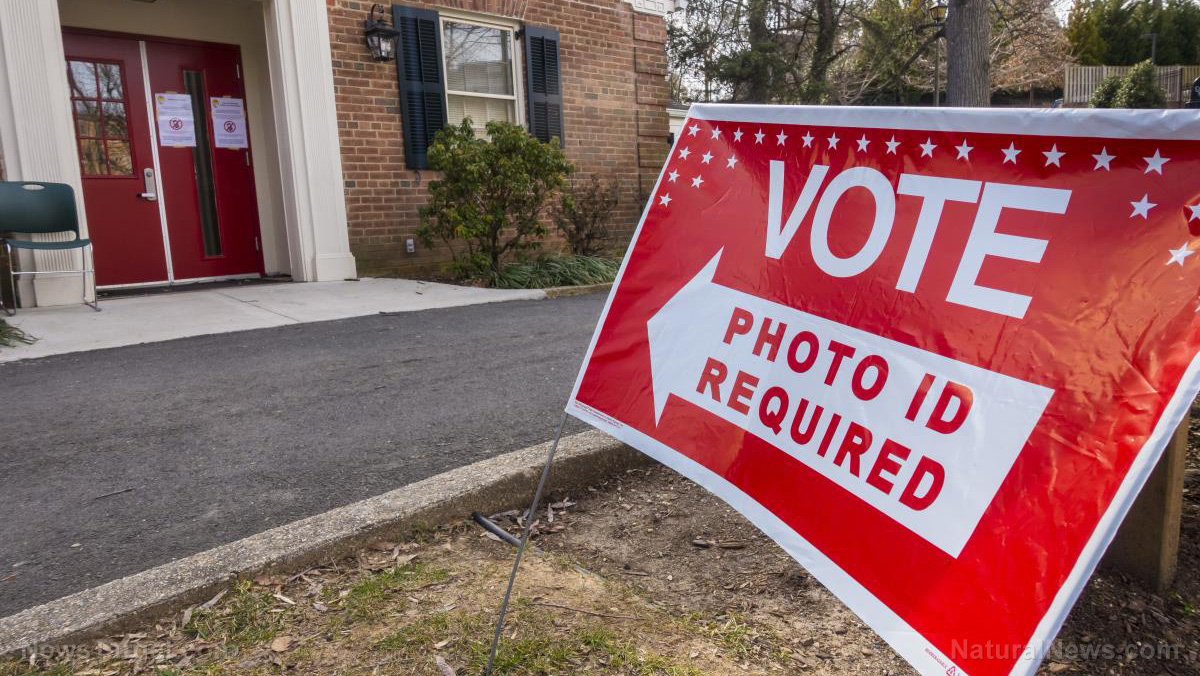
A federal judge has upheld Ohio's strict voter ID law, including its photo ID requirement, deeming it constitutional and rejecting a challenge brought by a Democratic law firm.
Senior District Judge Donald Nugent of the United States District Court for the Northern District of Ohio, appointed in 1995 by former President Bill Clinton, ruled that photo ID requirement "imposes no more than a minimal burden, if any, for the vast majority of voters."
The complaint, filed by the Elias Law Group on behalf of groups representing military veterans, teachers, retirees and the homeless, argued that the law imposed “needless and discriminatory burdens” on voting rights. (Related: Biden administration opposes bill that would require PROOF OF CITIZENSHIP for voting in federal elections.)
However, Nugent dismissed these claims, including those against the law's restrictions on drop boxes and tightened deadlines for absentee and provisional ballots.
Nugent asserted that voters do not have a constitutional right to access mail-in or early voting options. He highlighted that Ohio's schedule for obtaining and submitting absentee ballots remains more accommodating than those in 30 other states.
Additionally, he refuted the argument that limiting ballot drop boxes to one location negatively impacts voters, noting that this provision, implemented by the GOP-controlled legislature after extensive debate, was first used in 2023.
Before the 2020 election, Republican Secretary of State Frank LaRose's order establishing the single-box restriction faced criticism from three different courts as unreasonable and arbitrary.
Democrats and voting rights organizations had advocated for multiple drop boxes, especially in densely populated counties, to facilitate voting during the Wuhan coronavirus (COVID-19) pandemic.
A 2020 lawsuit led to a state appellate court ruling that LaRose could increase the number of drop boxes without legislative approval, though he was not required to do so.
The 2023 law formalized the single-box restriction, and Nugent stated that opponents failed to make a persuasive case against it.
Ohio Republicans working to require more Ohioans to provide photo ID to vote
Republicans in the state's House of Representatives are looking to build on this election integrity victory with House Bill 472, which will require Ohioans who register to vote, request mail-in ballots and show up to the polls to provide valid government-issued IDs.
Currently, state regulations only require Ohioans to provide valid government IDs when showing up at the polls. H.B. 472 would extend that and would also require a photocopy of IDs with completed ballots.
"And so we're trying to figure out how to correct the process early-on so that we're actually verifying that someone is an eligible elector before we're putting that into the large database," said State Rep. Bernie Willis (R-Springfield).
Among other proposals, Willis and state Republicans are also demanding new laws and amendments to existing electoral laws to include provisions allowing hand-counted ballots and new voting machine requirements that would force counties to replace outdated and potentially insecure voting machines.
H.B. 472 would also require cybersecurity reviews of new voting machines and prohibit voting machines from being connected to wider telecommunications networks, making them nearly invulnerable to hacking.
"Technology is rapidly evolving, which means that our systems must be constantly updated to prevent bad actors from threatening our elections," said bill co-sponsor State Rep. Theresa Gavarone (R-Bowling Green).
Watch this video discussing how more and more states are requiring photo ID to vote.
This video is from the Red Voice Media channel on Brighteon.com.
More related stories:
49 U.S. states now supplying ILLEGALS with voter registration forms.
Indiana and Mississippi SUED over online age verification laws.
Minnesota passes law allowing all voters to join permanent ABSENTEE VOTING list.
Sources include:
Please contact us for more information.




















